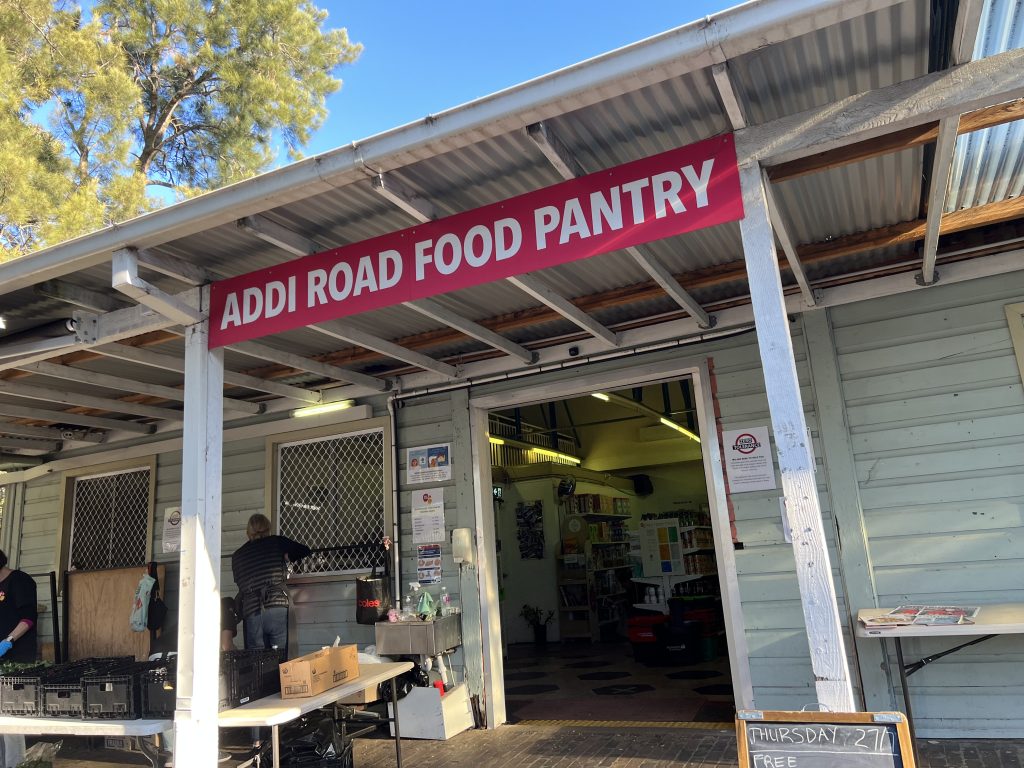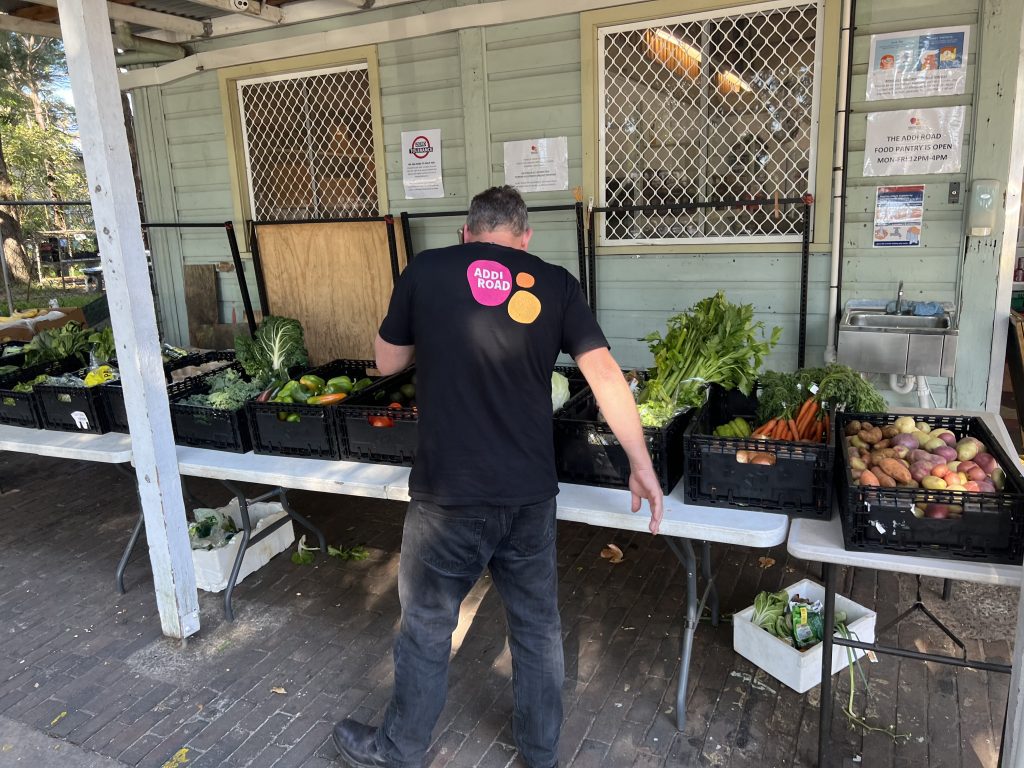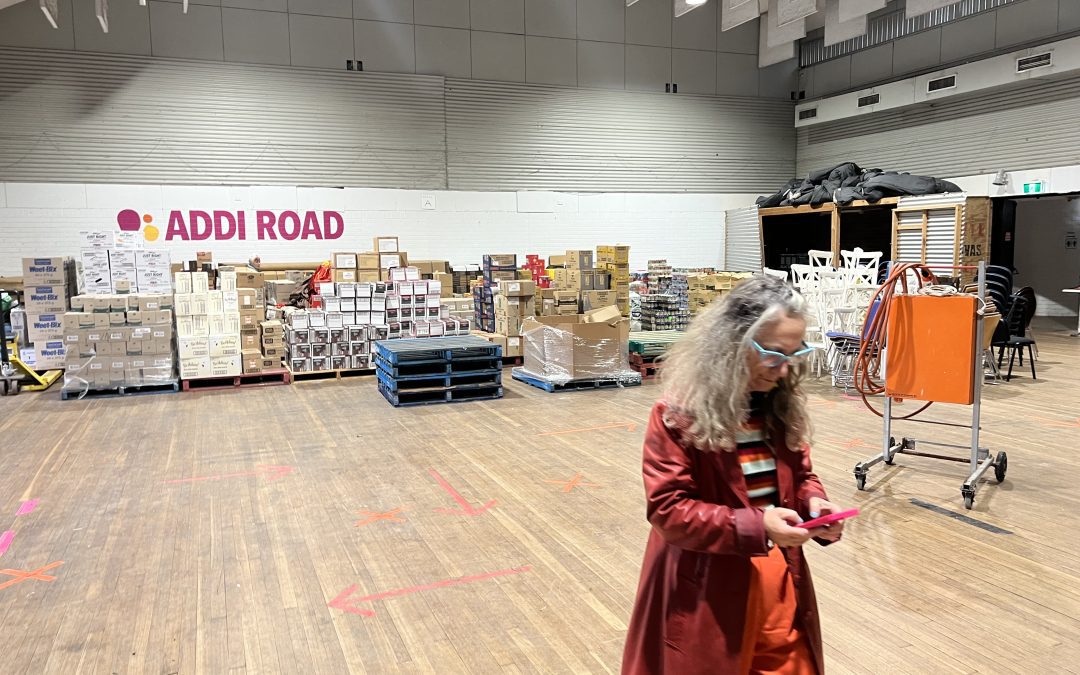Food is life. Food is love.
Food is also waste, suffering and war.
A new report from Food Bank Australia reveals that 3.7 million households (36%) experienced moderate to severe food insecurity in the last year. The report also reveals that almost half of Australia’s population is feeling anxious about being able to consistently afford or access adequate food.
Despite the best efforts of many organisations, including our own, 70% of food thrown away in landfill is “still edible”, only to end up as a major contributor to greenhouse gases emissions.
As part of a wide view that includes social inequality and housing insecurity, this documentation of intensifying food insecurity paints a toxic picture.
Addi Road CEO Rosanna Barbero describes the report as “quite disturbing”.
In a meeting at our community centre in Marrickville, the correlation with the cost-of-living and food supply crises in remote and regional First Nations communities – where clean and reliable drinking water is one of the most pressing of all issues – only heightens our concerns about what is going on right across this country.
Food security is at the heart of a national and international crisis, an increasingly critical measure of well-being and functional, just societies. It’s a crisis that is globally expressed in everything from unfair trade arrangements to multinational corporates ‘owning’ seed patents and bullying farmers into submitting to their agri-business directives, irrespective of the community and environmental impacts.
One of darkest expressions of this global struggle around food is happening now in Gaza, with Israel cutting off water and withholding supplies to 2.2 million people. Barbero says, “We believe everyone has the right to food and water. Denying people food is a crime. People starving, people going without food, is a crime, whether it’s a technique of war like Israel is using right now, or it’s happening during what we call peace in a rich country like our Australia.”

Addi Road Food Pantry Marrickville
Here in Sydney, the contributions made by Addi Road are inevitably small in scale but are made in solidarity with people fighting for their lives wherever they may be. It can, of course, be tricky linking such actions to broader policy and politics. As Barbero observes, “If you simply do charity [as an organisation] you are portrayed as a saint. If you start to talk about the causes, why the charity is needed in the first place, you very quickly get painted as subversive or radical.”
“What is happening in Gaza brings into focus the way food insecurity is not something that just happens in isolation. In that war context, food is being weaponised. Here in Australia, at Addi Road, we try to address food insecurity on multiple levels; we don’t just treat it as symptom, we try to address the inequality behind it and lobby for better practices with businesses as well as at a political level.”
“We don’t see food insecurity as some act of nature, we see it as the result of a deliberate policy choices. I say that because not having food on your table has very little to do with all the negative stereotypes that get laid on people who are battling: it’s not because they are f’d up; it’s not because they are bewitched; it’s not ‘their fault’. If you don’t have enough food on your table, if you’re frightened about keeping a roof over your head, it’s because you are the victim of direct policy choices that have been made at a higher political level.”
“We run two low-cost grocery stores to help at a direct street-level, the Addi Road Food Pantry Marrickville and Camperdown. We also work as best we can with people who are homeless and in need of a meal and free medical treatment through our partnership with Street Side Medics with our regular Wednesday Night Lights program.”
“We try to see all our activity in a bigger picture and make the connections. So, we support the human rights of Palestinian peoples to food. Absolutely. It’s a basic human right and they are being dehumanised. We make the same associations here in Sydney with all we do and what we support – and in any campaigns we can support that help those struggling to exist in ways that might be described as decent and human.
“In truth, we don’t see ourselves simply as a charity; we see what we do as an act of solidarity that comes from and connects with our community. If we can have any influence politically, as well as do the groundwork we continue to do, day in and day out, we will always argue for looking at the bigger picture, and for the way that oppression and inequality dehumanise everyone, both far away and close to home.”


